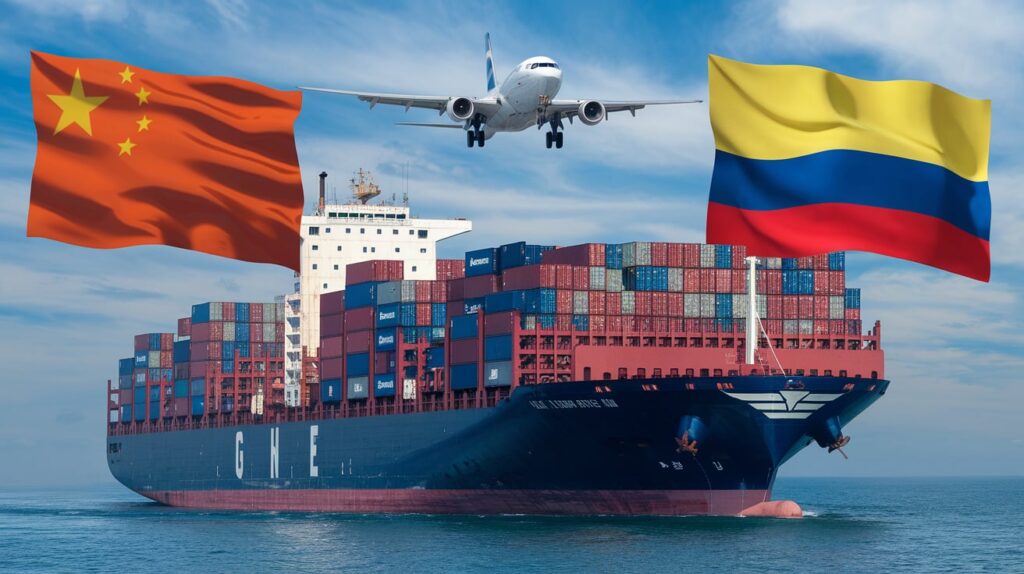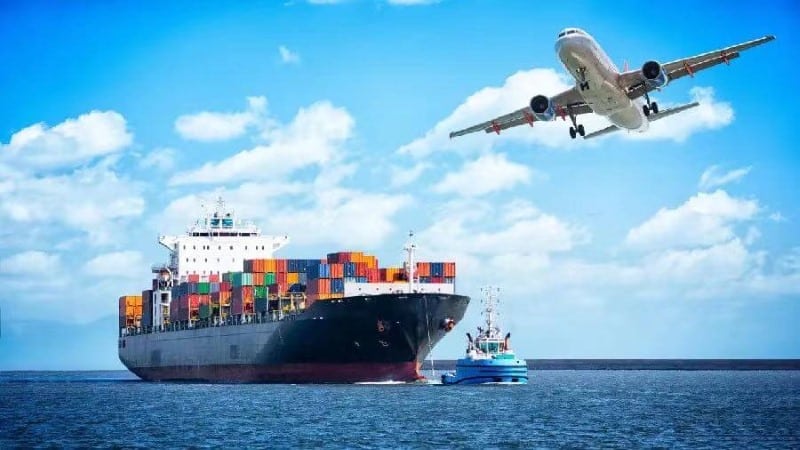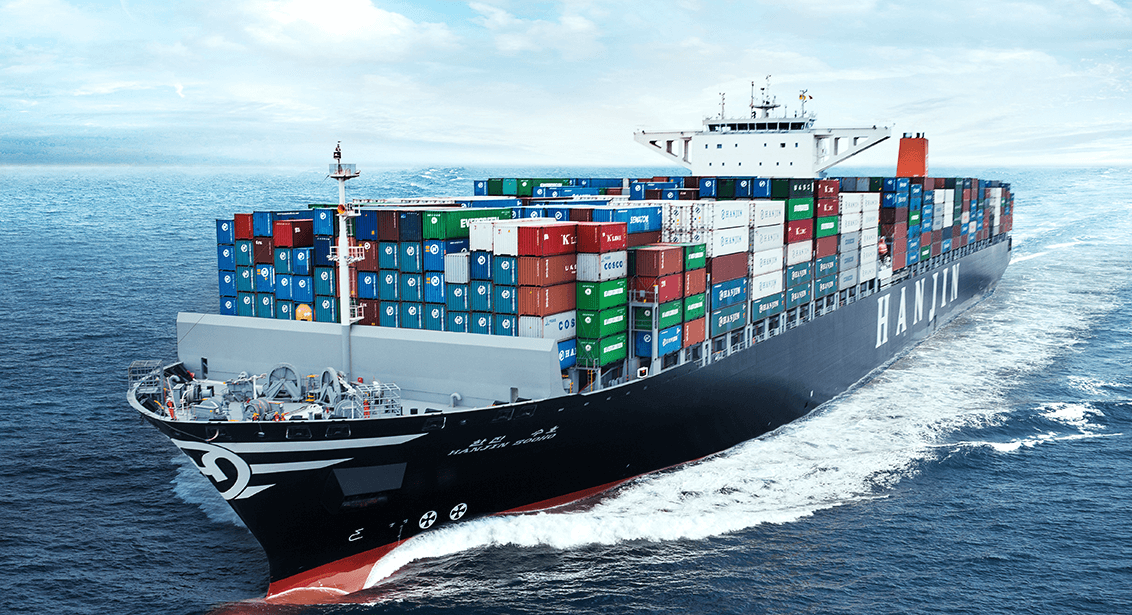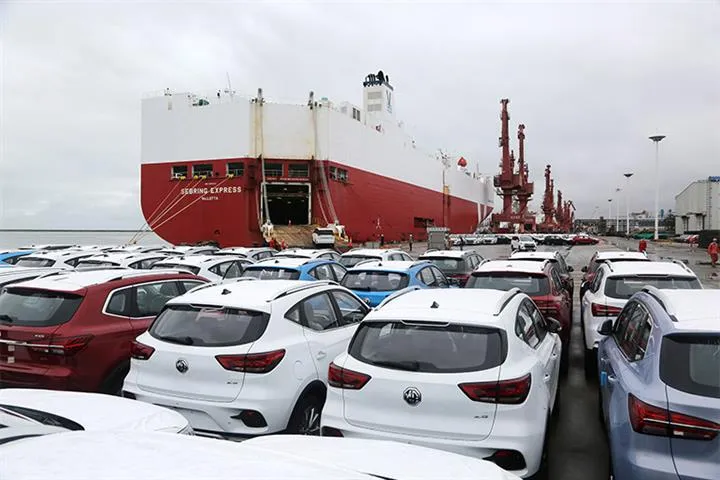In today’s global marketplace, Door to Door Shipping has become an indispensable service for businesses aiming to import goods efficiently. For entrepreneurs and companies looking to establish or expand their presence in Colombia, this streamlined shipping method simplifies logistics by offering a comprehensive solution that manages everything from collection to delivery. By utilizing Door to Door Shipping from China, businesses can save time and reduce the complexities associated with international shipping, such as customs clearance and coordination with multiple logistics providers. As trade relations between China and Colombia continue to flourish, understanding the nuances of this shipping method is essential for optimizing supply chains and ensuring timely delivery of products.

Understanding Door to Door Shipping Services
Door to Door Shipping refers to a logistics service that encompasses the entire shipping process from the seller’s location to the buyer’s specified address. It is an all-inclusive service that manages the complexities of shipping, including transportation, handling, customs clearance, and delivery. This type of service is particularly beneficial for businesses that may lack the resources or expertise to manage shipping independently.
The typical flow of Door to Door Shipping includes several key steps:
- Pickup: The shipping company collects the goods from the supplier’s location in China.
- Transportation: The items are transported to the destination country, utilizing modes such as air freight or ocean freight.
- Customs Clearance: The shipping provider handles all necessary customs documentation and procedures, ensuring compliance with the regulations of both China and Colombia.
- Last-Mile Delivery: Finally, the goods are delivered directly to the recipient’s address in Colombia.
This streamlined approach significantly reduces the burden on importers, allowing them to focus on their core business operations.
Key Features of Door to Door Shipping
The effectiveness of Door to Door Shipping is rooted in several key features:
| Feature | Description |
|---|---|
| Convenience | The service provides a seamless end-to-end solution, minimizing the need for multiple carriers. |
| Time Efficiency | By managing all logistics in one package, delivery times are often reduced compared to traditional methods. |
| Customs Handling | Expert handling of customs processes ensures compliance with local laws, reducing the risk of delays. |
| Tracking | Most shipping companies offer tracking services, allowing importers to monitor their shipments in real-time. |
| Flexible Options | Importers can choose from various shipping methods (air, sea, or combined) depending on their budget and urgency. |
| Cost-Effectiveness | With bundled services, businesses can achieve cost savings compared to managing logistics independently. |
Incorporating these features into your shipping strategy can lead to improved operational efficiency and enhanced customer satisfaction. For businesses considering importing goods from China to Colombia, partnering with a reliable logistics provider like Dantful International Logistics can ensure a hassle-free experience. With a commitment to offering A Highly Professional, Cost-effective And High-quality, One-Stop International Logistics Service Provider For Global Trader, Dantful is well-equipped to facilitate your Door to Door Shipping needs effectively.
You may be interested in the following related articles:
- The Ultimate Guide to Door to Door Shipping from China to Morocco
- The Benefits of Choosing Door to Door Shipping from China to Belgium
- The Ultimate Guide to Door to Door Shipping from China to Libya
- Everything You Need to Know About Door to Door Shipping from China to Ghana
- Step-by-Step Process of Door to Door Shipping from China to Peru
- The Ultimate Guide to Door to Door Shipping from China to Qatar
Benefits of Choosing Door to Door Shipping from China to Colombia
Convenience and Time Efficiency
Door to Door Shipping provides unparalleled convenience for businesses importing goods from China to Colombia. By consolidating the entire logistics process into one cohesive service, it eliminates the need for businesses to liaise with multiple shipping providers, thus reducing the complexity of the shipping process. This single-point service ensures that the goods are collected, transported, cleared through customs, and delivered to the desired location without requiring the importer to be actively involved in each step.
Time efficiency is another significant advantage. Traditional shipping methods often involve disconnecting logistics steps, leading to potential delays. In contrast, with Door to Door Shipping, the coordination of various transport modes and customs procedures is managed by a dedicated logistics provider. This results in expedited delivery times, allowing businesses to respond swiftly to market demands and maintain competitiveness in their respective sectors.
Cost-Effectiveness Compared to Other Shipping Methods
When evaluating shipping options, cost is a critical factor for businesses. Choosing Door to Door Shipping can often be more cost-effective compared to managing separate shipping methods. While it may initially appear more expensive due to the comprehensive nature of the service, the hidden costs associated with delays, customs penalties, and multiple logistics providers often make alternative methods more expensive in the long run.
Additionally, Dantful International Logistics offers competitive pricing structures for Door to Door Shipping from China to Colombia. By leveraging economies of scale and streamlined processes, Dantful can provide cost-effective solutions without sacrificing service quality. Importers benefit from transparent pricing models that help them budget effectively and avoid unexpected shipping costs.
READ MORE:
- Shipping From China to the United States
- Shipping From China TO Canada
- Shipping From China TO Mexico
- Shipping From China to Panama
- Shipping From China to Costa Rica
- Shipping From China to Brazil
- Shipping From China TO Colombia
- Shipping From China to Jamaica
- Shipping From China to Venezuela
Shipping Methods for Door to Door Delivery

Air Freight Door to Door Shipping
Air Freight is a popular option for businesses needing rapid delivery of goods. This method is particularly advantageous for high-value or time-sensitive shipments, making it an ideal choice for imports from China to Colombia.
Advantages of Air Freight for Door to Door Shipping
- Speed: Air freight is the fastest shipping method available, often completing door-to-door delivery in 3 to 10 days. This is crucial for businesses that need to quickly replenish stock or launch new products.
- Reliability: Airlines typically maintain strict schedules, reducing the risk of delays that can occur with other transport modes.
- Tracking: Air freight services often offer robust tracking systems, enabling importers to monitor their shipments throughout the delivery process.
- Safety: Air transport reduces the risk of damage or theft, making it suitable for fragile or high-value items.
Disadvantages of Air Freight for Door to Door Shipping
- Cost: While air freight is efficient, it tends to be significantly more expensive than other shipping methods, which can impact project budgets.
- Weight Restrictions: Airlines impose strict weight and size restrictions, making air freight less suitable for bulky items.
- Limited Cargo Types: Certain goods, such as hazardous materials, are restricted from air travel, which may limit shipping options for some businesses.
Sea Freight Door to Door Shipping
Sea Freight is an alternative to air freight, often favored for its cost-effectiveness, particularly for bulk shipments.
Advantages of Sea Freight for Door to Door Shipping
- Cost-Effectiveness: Sea freight is typically less expensive than air freight, making it a suitable choice for large shipments or when budget constraints are a primary concern.
- Capacity: Ships can carry a vast amount of cargo, including oversized and heavy items, which are not feasible for air freight.
- Environmental Impact: Shipping by sea generally has a lower carbon footprint compared to air transport, aligning with sustainability goals.
Disadvantages of Sea Freight for Door to Door Shipping
- Longer Transit Times: Sea freight can take significantly longer than air freight, often ranging from several days to weeks, which may not meet urgent delivery timelines.
- Potential for Delays: Factors such as weather conditions, port congestion, and customs clearance can lead to unpredictable delays.
- Limited Tracking: While tracking options are improving, sea freight shipments may not offer the same level of real-time tracking as air freight, leading to less visibility throughout the shipping process.
By understanding the benefits and characteristics of both Air Freight and Sea Freight, importers can make informed decisions that align with their business needs, ensuring efficient and effective Door to Door Shipping from China to Colombia. Partnering with Dantful International Logistics can further enhance these shipping strategies, providing dedicated support and expertise to optimize your international logistics.
Shipping Procedures for Door to Door Service
Door to Door Shipping from China to Colombia involves a systematic approach that ensures smooth transit from the supplier to the final destination. Understanding and following the step-by-step process is essential for importers to mitigate risks and expedite deliveries.
Step-by-Step Process of Door to Door Shipping
-
Initial Consultation: The process begins with an initial consultation between the importer and the logistics provider. During this phase, details such as shipment volume, type of goods, delivery timelines, and budget are discussed.
-
Quotation and Agreement: Based on the provided information, the logistics provider, such as Dantful International Logistics, offers a detailed quotation, including all costs associated with the shipping service. Once both parties agree on the terms, a service agreement is signed.
-
Pickup Coordination: After the agreement, the logistics company coordinates the pickup of goods directly from the supplier’s location in China. This involves scheduling a time for collection and ensuring that the necessary packing and labeling are completed according to regulations.
-
Transportation to Port/Airport: The goods are then transported to the nearest port or airport for international shipping. Depending on the chosen method (air or sea), the logistics provider handles all aspects of this transfer.
-
Customs Clearance in China: Before leaving China, the shipment must go through customs clearance, which involves the submission of required documentation and payment of any applicable duties or fees. This step is managed entirely by the logistics provider, ensuring compliance with local regulations.
-
International Transit: The shipment is then sent via the chosen transport method (air freight or sea freight) to Colombia. During this phase, the logistics provider tracks the shipment and provides updates to the importer.
-
Customs Clearance in Colombia: Upon arrival in Colombia, the shipment goes through customs clearance again. The logistics provider manages this process, ensuring that all necessary duties and taxes are paid and that all documents are in order.
-
Last-Mile Delivery: The final step involves transporting the shipment from the port or airport to the designated address in Colombia. This is known as last-mile delivery and is crucial for ensuring that the goods reach the importer without delays.
By following these steps, businesses can leverage Door to Door Shipping effectively, enhancing operational efficiency and customer satisfaction.
Customs Regulations and Requirements in Colombia
Understanding customs regulations is vital for successful Door to Door Shipping, as failing to comply can lead to delays and additional costs.
Understanding Import Duties and Taxes
Colombia imposes specific import duties and taxes based on the type of goods being imported. The main elements include:
- Customs Duty: This is a percentage of the goods’ value, dependent on the product classification under Colombia’s tariff system.
- Value Added Tax (VAT): While generally set at 19% for most goods, this can vary for certain items.
- Consumption Tax: Certain goods may also be subject to additional taxes depending on their nature (e.g., alcohol, tobacco).
Importers must be aware of these taxes to accurately calculate the total cost of importing goods and ensure compliance with financial obligations.
Necessary Documentation for Door to Door Shipping
Proper documentation is crucial for smooth customs clearance. Key documents required for importing goods into Colombia include:
| Document | Description |
|---|---|
| Commercial Invoice | A detailed invoice outlining the goods being imported, their value, and terms of sale. |
| Packing List | A comprehensive list that details the contents of each shipment, including weights and dimensions. |
| Bill of Lading (BOL) | A document issued by the shipping company, serving as a receipt for the goods and a contract of carriage. |
| Import Declaration | A mandatory document submitted to customs, declaring the nature of the goods being imported. |
| Certificate of Origin | Proof of the origin of the goods, which may be necessary for tariff reduction under trade agreements. |
Ensuring that all necessary documentation is prepared and submitted accurately is critical for compliance and efficiency in the customs process.
Choosing the Right Shipping Company
Selecting the right shipping company is vital for ensuring the success of your Door to Door Shipping operations. Various factors must be evaluated to make an informed decision.
Factors to Consider When Selecting a Shipping Company
-
Experience and Expertise: Look for a logistics provider with a proven track record in international shipping, particularly those specializing in routes between China and Colombia. This expertise can help navigate challenges and optimize logistics.
-
Service Range: Evaluate the range of services offered, including customs clearance, warehouse services, and insurance services. A comprehensive service portfolio can simplify logistics management and enhance efficiency.
-
Cost and Pricing Structure: Compare pricing structures among different providers. Ensure that the quote includes all potential costs to avoid unexpected fees later. Look for competitive rates without compromising service quality.
-
Customer Reviews and Reputation: Research customer feedback and testimonials to gauge the reliability and service quality of the shipping company. A reputable provider will often have positive reviews and a strong market presence.
-
Technology and Tracking: Modern logistics requires real-time tracking capabilities. Choose a company that offers advanced tracking systems to monitor shipment status throughout the logistics process.
-
Customer Support: Responsive customer service is critical for resolving issues that may arise during shipping. Ensure that the provider offers robust support channels for timely assistance.
Partnering with a trustworthy logistics provider, such as Dantful International Logistics, can significantly enhance your shipping experience. Dantful not only offers a highly professional, cost-effective, and high-quality One-Stop International Logistics Service, but also ensures that your Door to Door Shipping needs are efficiently met. Their expertise in managing customs regulations and comprehensive service offerings make them an ideal partner for businesses importing goods from China to Colombia.
Dantful International Logistics Services:
- Dantful Ocean Freight Services
- Air Freight From China
- Amazon FBA Freight Forwarding
- WAREHOUSE Services
- One-Stop Customs Clearance Solution
- Cargo Insurance Services in China
- DDP Shipping Services By Dantful Logistics
- Out of Gauge Cargo Transportation Shipping Services
FAQs
1. What is Door to Door Shipping?
Door to Door Shipping is a logistics service that manages the entire process of shipping goods from the seller’s location to the buyer’s specified address. It includes pickup, transportation, customs clearance, and final delivery, simplifying the logistics process for businesses.
2. What are the benefits of using Door to Door Shipping?
The primary benefits include:
- Convenience: Simplifies logistics by providing a single-point service.
- Time Efficiency: Reduces delivery times by managing all steps through one provider.
- Cost-Effectiveness: Can save on hidden costs associated with managing multiple logistics providers.
- Customs Handling: Expert management of customs processes minimizes delays and compliance issues.
3. What shipping methods are available for Door to Door Shipping?
The two main shipping methods are:
- Air Freight: Fast and reliable, suitable for high-value or time-sensitive shipments, typically taking 3 to 10 days.
- Sea Freight: More economical for bulk shipments but involves longer transit times, generally several days to weeks.
4. What is the process for Door to Door Shipping?
The process typically includes:
- Initial consultation and quotation.
- Pickup coordination from the supplier in China.
- Transportation to the port/airport.
- Customs clearance in China.
- International transit to Colombia.
- Customs clearance in Colombia.
- Last-mile delivery to the recipient’s address.
5. What customs duties and taxes apply when importing into Colombia?
Colombia imposes several charges, including:
- Customs Duty: A percentage of the goods’ value based on product classification.
- Value Added Tax (VAT): Generally set at 19% for most goods.
- Consumption Tax: Additional taxes may apply to specific goods like alcohol and tobacco.
6. What documentation is required for Door to Door Shipping?
Key documents needed include:
- Commercial Invoice
- Packing List
- Bill of Lading (BOL)
- Import Declaration
- Certificate of Origin
7. How do I choose the right shipping company for Door to Door Shipping?
When selecting a shipping company, consider:
- Their experience and expertise in international shipping.
- The range of services they offer, including customs clearance and insurance.
- Their pricing structure and overall reputation.
- Technology and tracking capabilities for shipment monitoring.
- Availability of customer support for assistance.

Young Chiu is a seasoned logistics expert with over 15 years of experience in international freight forwarding and supply chain management. As CEO of Dantful International Logistics, Young is dedicated to providing valuable insights and practical advice to businesses navigating the complexities of global shipping.
The other language versions of this article
- كشف أسرار الشحن من الباب إلى الباب من الصين إلى كولومبيا
- De geheimen van deur-tot-deur verzending van China naar Colombia ontrafelen
- Découvrez les secrets de l’expédition porte à porte de la Chine vers la Colombie
- Die Geheimnisse des Tür-zu-Tür-Versands von China nach Kolumbien lüften
- Scopri i segreti della spedizione porta a porta dalla Cina alla Colombia
- Descubriendo los secretos del envío puerta a puerta desde China a Colombia
- Desvendando os segredos do transporte porta a porta da China para a Colômbia
- Раскрываем секреты доставки «от двери до двери» из Китая в Колумбию
- Çin’den Kolombiya’ya Kapıdan Kapıya Nakliyenin Sırlarını Açığa Çıkarmak





















 Afrikaans
Afrikaans Shqip
Shqip አማርኛ
አማርኛ العربية
العربية Հայերեն
Հայերեն Azərbaycan dili
Azərbaycan dili Euskara
Euskara Беларуская мова
Беларуская мова বাংলা
বাংলা Bosanski
Bosanski Български
Български Català
Català Cebuano
Cebuano Chichewa
Chichewa 简体中文
简体中文 繁體中文
繁體中文 Corsu
Corsu Hrvatski
Hrvatski Čeština
Čeština Dansk
Dansk Nederlands
Nederlands English
English Esperanto
Esperanto Eesti
Eesti Filipino
Filipino Suomi
Suomi Français
Français Galego
Galego ქართული
ქართული Deutsch
Deutsch Ελληνικά
Ελληνικά Kreyol ayisyen
Kreyol ayisyen Harshen Hausa
Harshen Hausa Ōlelo Hawaiʻi
Ōlelo Hawaiʻi עִבְרִית
עִבְרִית हिन्दी
हिन्दी Hmong
Hmong Magyar
Magyar Íslenska
Íslenska Igbo
Igbo Bahasa Indonesia
Bahasa Indonesia Gaeilge
Gaeilge Italiano
Italiano 日本語
日本語 Basa Jawa
Basa Jawa ಕನ್ನಡ
ಕನ್ನಡ Қазақ тілі
Қазақ тілі ភាសាខ្មែរ
ភាសាខ្មែរ 한국어
한국어 كوردی
كوردی Кыргызча
Кыргызча ພາສາລາວ
ພາສາລາວ Latin
Latin Latviešu valoda
Latviešu valoda Lietuvių kalba
Lietuvių kalba Lëtzebuergesch
Lëtzebuergesch Македонски јазик
Македонски јазик Malagasy
Malagasy Bahasa Melayu
Bahasa Melayu മലയാളം
മലയാളം Maltese
Maltese Te Reo Māori
Te Reo Māori मराठी
मराठी Монгол
Монгол ဗမာစာ
ဗမာစာ नेपाली
नेपाली Norsk bokmål
Norsk bokmål پښتو
پښتو فارسی
فارسی Polski
Polski Português
Português ਪੰਜਾਬੀ
ਪੰਜਾਬੀ Română
Română Русский
Русский Samoan
Samoan Gàidhlig
Gàidhlig Српски језик
Српски језик Sesotho
Sesotho Shona
Shona سنڌي
سنڌي සිංහල
සිංහල Slovenčina
Slovenčina Slovenščina
Slovenščina Afsoomaali
Afsoomaali Español
Español Basa Sunda
Basa Sunda Kiswahili
Kiswahili Svenska
Svenska Тоҷикӣ
Тоҷикӣ தமிழ்
தமிழ் తెలుగు
తెలుగు ไทย
ไทย Türkçe
Türkçe Українська
Українська اردو
اردو O‘zbekcha
O‘zbekcha Tiếng Việt
Tiếng Việt Cymraeg
Cymraeg יידיש
יידיש Yorùbá
Yorùbá Zulu
Zulu